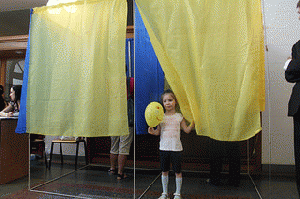
 SHARE |
|
Attended college thanks to the generous state support of education in 1960's America. Earned a Ph.D. in mathematics at the University of Illinois followed by post doctoral research positions at the Institute for Advanced Study in Princeton. Taught for several years at Lehigh University prior to a short stint at Bell Laboratories but followed by a much longer career at NEC punctuated by ten U.S. and international patents in the general area to semiconductor applications. Now living in a comfortable Maine retirement community and focused on the prospect of upgrading democracy by means of an improved voting system.
OpEd News Member for 982 week(s) and 3 day(s)
145 Articles, 30 Quick Links, 1498 Comments, 12 Diaries, 3 Series, 8 Polls
Series Listed By Popularity List Alphabetically
Politics in America has always been dominated by two major parties and often several others that are widely understood to not have a chance of taking power. Is there some way to change this?Articles in this series discuss several other ways we might vote that would encourage there to be a wider range of choices for voters. The basic notion is that voters should be permitted to vote against any candidate just as they can vote for any candidate. Several approaches to allowing this are discussed in different articles.
Balanced voting (which is a term that unfortunately has been adopted, mostly in Europe with a completely different meaning) quite directly takes into account opposition to a candidate as well as support. This will often remove the advantage that celebrity candidates have.
For several years I have been submitting articles on voting, with an emphasis on Balanced Voting. Among these articles are at least a half dozen that are about ranked voting or which are at least closely tied to ranked voting. The purpose of this series is to make available a list of those articles for people who are particularly interested in those kinds of voting systems.
Currently, most electric power companies charge for delivery of each KWH of power to end customers. This fails badly in modeling the actual costs of the service and in economic terms this is inefficient and it results in market distortions. These articles explore the real-world impact of this.




